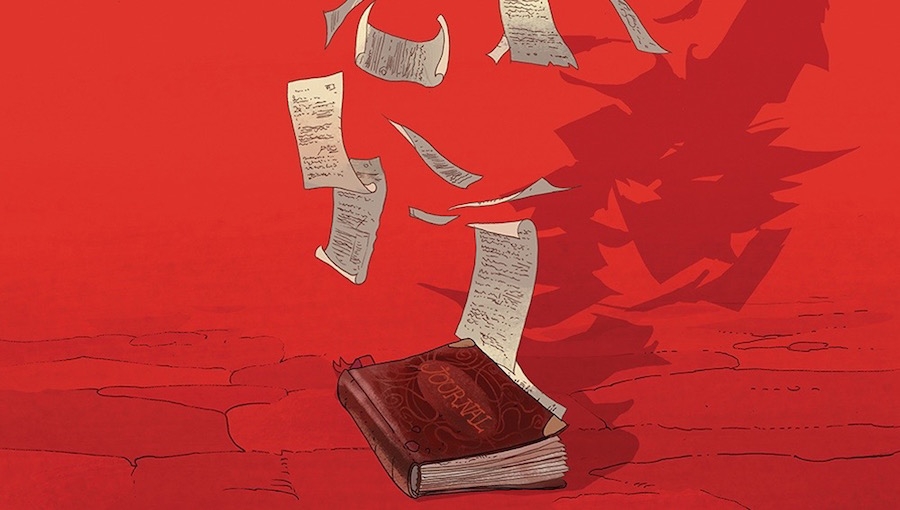Something inside me needed Si Spurrier and Matías Bergara’s Coda. The tale of a world with the last bit of its magic dying. The tale of our anti-hero Bard named Hum and his insanely cool unicorn steed, Nag. What started as a journey to save his love Serka ended as a journey in which he was trying to save his soul from the worst version of himself for Serka.
When I remembered that issue twelve of Coda was what I had to read late last night, I exhaled a deep exhale. A lot of people cry during movies, TV shows, music, live theatre, and YouTube videos of animals. I do. I also cry when I read comic books. The level of consistent sophistication brought to comics in the last couple decades has been a truly beautiful thing. Si Spurrier is one of the best. And, as I imagined, I cried through much of this twelfth issue of Coda, and I also exclaimed “woah” a couple times, as well, thanks to Bergara’s insanely cool artwork. Props to these creators for paying off a throwaway joke in the first issue.
For a year now, I have been wrapped up in this sprawling, epic, post-fantasy tale with beautiful and massive images that make me feel like a ten-year-old again, flipping back and forth through the pages with my mouth agape. This has been one of my favorite things to look at for the last year, and I’m seriously considering dropping one thousand dollars for some original artwork…
But, it’s not simply an epic fantasy; it’s an intimate journey about love, forgiveness, and finding who you are in a world that you no longer recognize. It’s about loving someone, not how you want them to be, but for who they are: their strength, their anger, their sadness, and their faults. It’s about choosing to do what’s right over what you want done that will benefit you. The perpetually exhausted Hum spent the better part of this story trying to find a way to “fix” Serka, a badass, berserker Barbarian, the love of his life. The fact that we get Hum’s inner thoughts allows us to see, though incredibly misguided, how much he’s willing to go through and do to help someone he loves. It’s this push and pull that allows us to equally love and hate Hum. We want to see him succeed, but not in the way he wants to succeed. We want to see him stop and help others, and we cringe when he goes about doing something self-serving.
Life changes drastically sometimes. You can be torn asunder, and it can take a long time to rebuild yourself; other times, you can feel the need to change who you are for others. Who you know you are can be lost, what you think you need can be corrupted, and how you go about getting what you want when the thing you want is not what’s best for anyone can hurt you and others even more. This cognitive dissonance can affect anyone and is the driving force behind Hum’s story arc. I look around and I see our world dealing with the worst version of itself. I look at the upheavals I’ve been through in recent years. It’s difficult not to be overwhelmed by the toxicity that we experience in our everyday lives, from politics to bullies to gross dudes all over Twitter. Cynicism has become the air we breathe, and that toxicity we run into has the power to change who we are, as well. I think the journey of Hum and Serka is a journey we all need right now. We need to have the strength of character like Serka, and the ability to change like Hum, and we all need a pet like Nag.
This book is beautiful, and we are all that much better for its existence.
Creative Team: Simon Spurrier (story), Matías Bergara (art), Michael Doig (color assist), Colin Bell (letters), Marie Krupina (designer), Eric Harburn (editor)
Publisher: BOOM! Studios
Click here to purchase.

